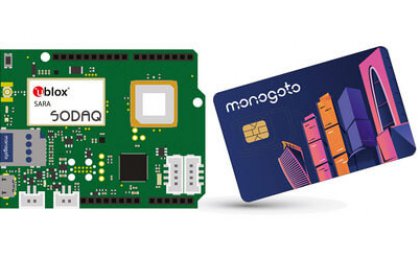
The two companies’ collaboration goes further than just creating a product; Together they are enabling small businesses and large corporations alike to create entire online architectures and ecosystems, using small Arduino based boards over nothing more than a simple low-powered internet connection anywhere on the planet.
Over the top IoT connectivity provider monogoto says it is an important stage in its connectivity growth strategy, as according to market research by Ericsson, the amount of cellular IoT connected devices will cross the 5 billion mark by 2025 when cellular LPWAN technologies are expected to account for over 50 percent of these.
Enabling the eDRX and PSM features can dramatically save the IoT device energy and as a result, provide a cost-effective solution in the long run. One big advantage of monogoto’s IoT SIM is the ability to access the SIM remotely via API and configure eDRX and PSM settings (e.g. eDRX cycles) according to the project requirements.
“We are excited to announce this cooperation with SODAQ,” says Itamar Kunik, CEO at monogoto. ”Nowadays, IoT solutions are built by developers rather than telecom engineers. As a global IoT connectivity leader, we must continue our efforts to simplify, innovate and lower the barrier to our clients, enabling the access to advanced cellular network features via simple APIs”
Dutch IoT development company SODAQ has made strides in developing a low-cost, Arduino compatible, low-powered (to the point where it can be solar-powered) development board that can be used in a multitude of IoT applications. What makes SODAQ’s SFF and AFF boards unique aside from their ability to run on solar, is their built-in location telemetry and good modularity, allowing the user to interface a plethora of different sensors to it, fully customizing the board for any specific use-case.
‘’It’s developments like these that help shape the standards of IoT applications of tomorrow.’’ Said Ollie Smeenk, COO of SODAQ. ‘’By creating a solar-powered solution that allows the user to fully customize their boards to their liking, we are making IoT a more logical choice for businesses. I’d like to imagine a world where sustainable devices become the norm, and our board is an example of what the future can look like.’’
It is in bold collaborations like these where the benefits go beyond the initial projects; SODAQ will continue to develop a wider range of optimized boards that ultimately increase the quality of IoT tracking and data acquisition in logistics. One of these developments is using Nordic Semiconductors’ new NRF9160 module to allow for even lower power positioning and communications. Agricultural and environmental endeavors also reap the benefits, while reducing the costs and waste for all parties. monogoto gets to increase its global footprint and enable cheap reliable cellular IoT connectivity for large scale projects. One of the improvements has been the development of boards that enable eDRX and PSM as mentioned above. Here is a brief description of these technologies:
- eDRX (extended Discontinuous Receive) is a technology provided in cellular communications that allows a modem connected to the network to only listen for incoming messages rather than transmit data. This means that the device can be in deep sleep for the majority of the time, listen at a set interval, and be reached/activated to transmit data to the network within a matter of minutes while only requiring an active transmission daily.
- PSM (Power Save Mode) is a feature that reduces power consumption even further as it allows for extended periods of device deep sleep (multiple days between transmissions) without requiring the device to re-register to the network each time it wakes up.
- Both technologies require the device to agree on a communication interval with the network, which can be set using monogoto’s API.
For both technologies SODAQ has created libraries and software examples, implementing them for multiple clients.
About monogoto
monogoto is a Secure Cellular Core as-a-service enabling enterprises, manufacturers, and IoT startups with Secure Cellular Connectivity solutions for IoT/M2M use cases. It provides network survivability and service resiliency, based on multi-network (local and global) coverage. monogoto combines this offering with a Private LTE as-a-service on CBRS or any other band. This allows customers to build their own network alongside the possibility of interconnecting to multiple MNOs, all from the same SIM card using the same mobile core.
Offering a true self-service for cellular connectivity via a web-based management platform, monogoto provides advanced capabilities, currently mostly available to Tier 1 operators, such as full control over Data/Voice/SMS traffic, full visibility and monitoring of all network events, automated event-based alerts, advanced security policy enforcement, and global roaming control. Every functionality in the monogoto network can be embedded into existing business processes (e.g. CRM, ERP, etc.) via its RESTful APIs.
About SODAQ
SODAQ is a Dutch Innovative IoT company that is rapidly expanding throughout the world due to its high-quality NB-IoT, LTE-M, and LoRa boards. SODAQ has always been at the forefront of the rapidly changing world of the ‘Internet of Things’ and is specialized in scalable and efficient hardware and software to empower businesses in all sorts of industries and budget ranges. In order to accomplish this vision, they develop their very own SODAQ hardware products that are compatible with many existing modules and systems, allowing for seamless integration with existing products on the market. We have been actively producing and testing units for NB-IOT and LTE-M for the last 3 years.
To find out more about monogoto, visit www.monogoto.io
To find out more about SODAQ, visit www.sodaq.com

